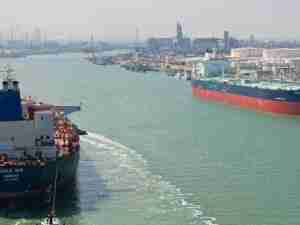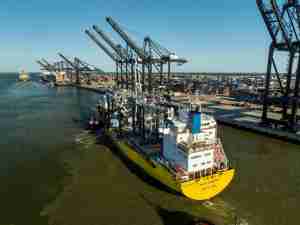CITIC starts court proceedings against Qingdao port operator
By: Reuters | Jul 07 2014 at 11:29 PM | Ports & Terminals
China’s CITIC Resources Holdings Ltd has begun court proceedings against the operator of a bonded warehouse at Qingdao port as legal action ramps up following an investigation into metals financing fraud at the world’s seventh busiest port.
CITIC Resources said last month it had been unable to secure around 120,000 tonnes of alumina, more than half of the alumina stocks it had title to that were stored at the port pending payment by buyers and delivery.
Under the legal action, CITIC is requiring the port operator to confirm its ownership of 223,270 tonnes of alumina and 7,486 tonnes of copper, and to release the metal to the group or to offer compensation, it said in a filing to the Hong Kong stock exchange on Tuesday.
“Until the status of the investigation is clarified and the group has conducted its own investigation, the company is not able to accurately assess the impact on the Group’s alumina and copper stored at Qingdao port or on the Group itself,” CITIC said in the filing.
CITIC Resources, in which Singapore sovereign wealth fund Temasek Holdings has an 11.46 percent stake, is the commodities trading unit of China’s biggest and oldest state-owned financial conglomerate company, Citic Group Corp.
CITIC is the second company to say it has started legal action to recoup losses since Chinese authorities launched an investigation last month over the alleged duplication of warehouse receipts to obtain multiple loans secured against a single cargo of metal.
They are investigating the company at the centre of the fraud Decheng Mining and linked companies. Decheng Mining has not commented on the probe.
Last month, China’s Shanxi Coal International Energy Group said it was suing Decheng and its parent for over $177 million in missed payments the two had guaranteed.
But given multiple global and domestic banks and collateral managers have been hit by the potential fraud, each with their own tailored contracts, questions over jurisdiction, liability and length of the court process remain.
As details of the potential fraud become clearer, the possible exposure of various parties to Decheng and its parent could amount to around $2.8 billion, according to an aggregation of amounts contained in company statements and Chinese media.
Goldman Sachs estimated in March that commodity-backed deals account for as much as $160 billion, or about 30 percent of China’s short-term foreign-exchange borrowing.










